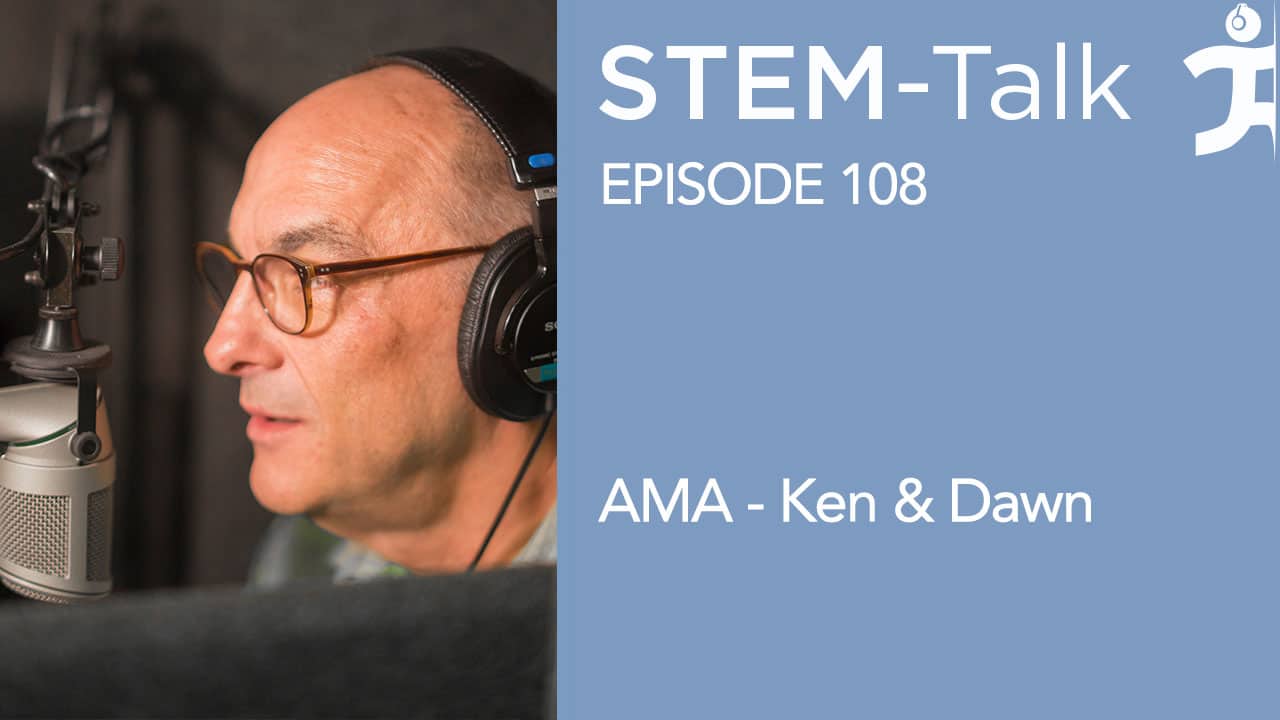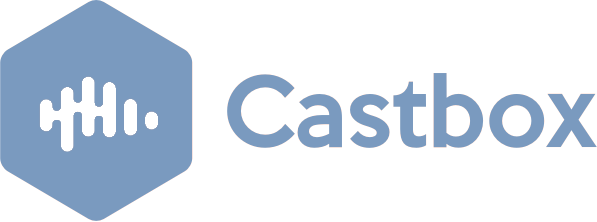STEM-Talk
Episode 108: Ken and Dawn tackle questions ranging from AI to amino acids to methylene blue to ketosis to COVID-19
// Jun 23, 2020

Because of the number of questions that keep pouring in, today we have another Ask Me Anything episode. We also have been receiving requests to do more of these shows, so we plan to record more frequent AMA episodes in the future. If you have questions for Ken and Dawn, email them to STEM-Talk producer Randy Hammer at rhammer@ihmc.us.
In today’s episode we touch a little bit on COVID-19, but most questions revolve around diet and sleep and brain health. Ken also explains the meaning behind IHMC’s name and Dawn shares why she tweaked her vegetarian lifestyle to now include fish in her diet. Plus, Ken weighs in on the dangers of AI, real and imagined. It’s a fun, wide-ranging episode. Enjoy!
Show notes:
[00:02:28] Dawn opens the AMA with a listener question for Ken about his thoughts on social distancing. [00:03:19] A listener asks Dawn about the long-term pulmonary effects for survivors of COVID-19, and how this will impact divers. [00:04:49] Dawn reads a listener question for Ken about the U.S. relationship with China in regards to drug manufacturing: “During your interview with Katherine Eban, you made a comment about how current events related to COVID-19 truly highlight the fault in our dependency on Chinese manufacturing for our pharmaceuticals. That was just a few months ago…Where do you see our relationship with China heading with respect to drug manufacturing in the future?”{00:06:54] Ken talks about the need for each individual to take responsibility for the pharmaceuticals they ingest and recommends listening to Katherine’s Eban’s STEM-Talk interview and checking out her website, which has a wealth of information about generic drugs.
[00:07:19] A listener asks Dawn about her shift from strict vegetarianism to occasionally adding fish into her diet. The listener wonders if this came about as a result of some of the discussions on STEM-Talk, or if her decision was inspired by something else? [00:09:07] A listener asks Ken if he uses branch chain amino acids, and if so how? [00:11:52] Ken talks about how combining essential amino-acid supplementation with mechanical loading via resistance training is a powerful strategy to combat the age-related loss of muscle function and mass that often leads to sarcopenia in the older population. [00:14:45] Dawn poses a listener’s question to Ken about why nutritionists seem to almost unanimously tolerate intermittent fasting or time-restricted eating, but oppose the ketogenic diet. The listener goes on to ask if there is any difference between getting into ketosis through diet versus fasting. [00:17:30] A listener asks Ken, who was an early adopter of a low-carb ketogenic diet, how his understanding of low-carb and healthy diets has changed as research has progressed. [00:19:25] A listener talks about how their adoption of time-restricted eating has led to late-night binge eating. The listener asks if it is true that skipping breakfast makes it harder to suppress ghrelin, sometimes referred to as “the hunger hormone.” The listener is curious about this because so many STEM-Talk guests talk about how they skip breakfast. [00:22:45] A listener asks Dawn: “In your podcast with Francisco Gonzalez-Lima, you talked about the potential role of methylene blue in protecting individuals exposed to environmental hypoxia. Do you know of any studies that have looked at this potential application of methylene blue?” [00:26:05] A listener asks Ken about adding legumes back into one’s diet after losing weight through the ketogenic diet, and if the weight will return if legumes are reintroduced. [00:29:20] A listener asks how Ken came up with the name “Institute for Human and Machine Cognition,” and what all the name entails? [00:30:51] A listener asks Dawn about the replication of extreme environments in a lab setting when studying human performance in various extreme environments. [00:34:56] A listener asks Ken: “There was some recent news coverage about how tanks are being driven by artificial intelligence and how machine guns are being equipped with facial recognition software…As I listened to the interview that Dawn did with you a while back, you said you didn’t agree with Elon Musk’s rather dark vision of rogue robots going around killing people…I’m curious if your thoughts about weaponized robots and the dangers of AI have changed over the past couple of years. And what do you see as the future?” [00:37:14] In responding to a listener’s question about the best ways to improve a person’s mental health, Ken recommends throwing away your TV, limiting your time on social media, taking walks in forests, get better sleep, have more sex, and listen to STEM-Talk. He goes on to expand on some of these ideas. [00:38:27] A listener asks if Ken has ever used the Ooler sleep device, and if so, what does he think of it? [00:39:32] Dawn answers a listener’s question about what her research into the brain’s lymphatic system in extreme environments is yielding. [00:41:54] A listener asks Ken to elaborate on a speech he gave in which he said people should strive to be better animals. Ken explains what he meant and adds that people should also recognize and embrace that we are all part of the animal kingdom. [00:42:56] A listener mentions that there are several activity and sleep-tracking devices in the form of a ring, and that during the Peter Attia episode, Ken and Peter discussed the Oura ring and another ring that Ken said he was evaluating. The listener asks about the results of that evaluation. [00:46:59] Ken asks Dawn if it’s true that you have better glymphatic function when you sleep on your side? [00:47:52] A listener asks how the collection of health-related data via smartphones and wearables will impact the diving community. The listener goes on to ask if Dawn sees the diving community moving toward collecting such physiological parameters to define such things as decompression. [00:50:14] Ken asks Dawn about underwater eye-tracking studies. [00:51:32] Dawn closes the AMA with a listener’s question about natural sleep aids to maintain healthy sleep during the COVID-19 crisis and the disruption of sleep schedules that many people are experiencing in quarantine.






